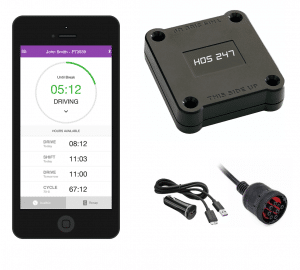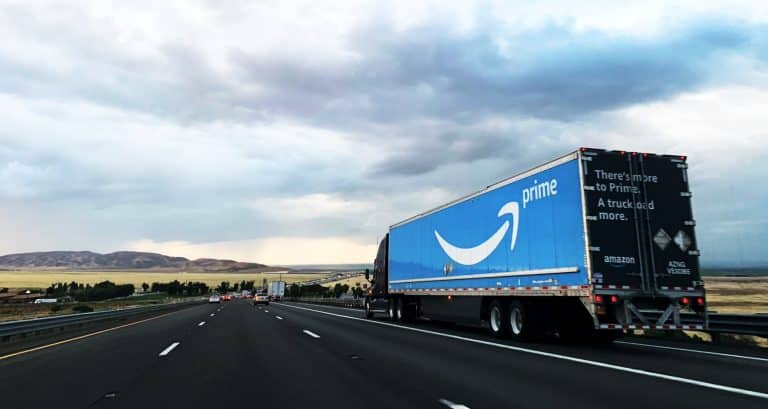The ELD mandate, also known as ELD final rule, was issued by the Federal Motor Carrier Safety Administration as a measure to improve the safety of drivers and road traffic. The rule requires truck drivers to use ELDs, electronic logging devices, tho automatically capture hours of service (HOS) data such as truck movements with GPS locations, miles driven and engine hours. ELDs calculate the time that drivers spend behind the wheel and prevent them from exceeding hours of service limits to stay in compliant with federal and state regulations.
The ELD final rule was published in December 2015 with the compliance deadline set for December 18, 2017. However, some state regulators decided to postpone the adoption of the ELD mandate. The Golden State is one examples. In this article, we will discuss California HOS rules, ELD requirements and what HOS247 brings to the table to help carriers stay compliant and increase productivity.
Do you have any questions? Talk to ELD Advisor: 650-405-3372 or Request Callback
Intrastate Carriers in California
Intrastate carriers and drivers operate only within one state. California is one of the most significant states in terms of in-state truck driving. The state’s regulators decided to postpone the enforcement of the ELD mandate for intrastate drivers. At the moment, California state officials have set December 31, 2020 as the deadline for truck drivers to comply with the new rules.
However, officials recognize that obstacles may arise in the process. For example, local hours of service rules differ from the federally mandated HOS requirements. There is a possibility that the adoption date could be changed yet again.
Who Is Exempt from the ELD Mandate?
According to Federal Motor Carrier Safety Administration most drivers who maintain RODS (records of duty status, known also as drivers’ logs) are subject to the new rule. The ELD mandate applies to most commercial trucks and buses. However, there are a few exemptions. The next categories of drivers are not required to install ELDs in their vehicles:
- Drivers who are required to use paper logs for not more than 8 days during any 30-day period
- Drivers who conduct driveaway-towaway operations where the vehicle is itself the commodity being delivered.
- Drivers of vehicles manufactured before 2000.
Drivers who are not required to maintain RODS, such as short-haul drivers, are not required to install ELDs on their vehicles.
Users of automatic onboard recording devices (AOBRD) installed prior to the Dec. 17, 2017 are temporarily exempt from installing ELDs. All drivers using AOBRDs must convert to ELDs by December 16, 2019. The delay in ELD compliance date for AOBRD users is often referred to as “the Grandfather rule”.
AOBRD vs ELD
The automatic on-board recording devices, or AOBRDs, like ELDs, are pieces of hardware installed in the vehicles to collect data on hours of service. The crucial difference between AOBRDs and ELDs is the amount of data the hardware can collect. ELD records are more accurate and detailed. The new generation of hardware is also more restrictive: ELDs allow less editing of data and warn drivers about going over driving limits.
Do you have any questions? Talk to ELD Advisor: 650-405-3372 or Request Callback
ELD Compliance Timeline
Federal
According to rules established by the Federal Motor Carrier Safety Administration, there are two major ELD deadlines:
- December 18, 2017 – Commercial Motor Vehicles must be equipped with ELDs or AOBRDs;
- December 16, 2019 – Commercial Motor Vehicles must be equipped with ELDs.
California
- October 1, 2018 – ELD mandate regulations enforced for commercial interstate drivers in California
- December 31, 2020 – Estimated adoption of ELD mandate for intrastate drivers in California
California Hours of Service for Truck Drivers
- Not allowed to drive more than 12 hours during a work period;
- Not allowed to drive after the 16th consecutive hour from first coming On-Duty;
- 10 consecutive hours Off-Duty are required to reset for new work period;
- Not allowed to drive after having been On-Duty 80 hours in any 8 consecutive day period;
- The 8th day cumulative total may be reset to 0 (zero) with the beginning of any Off-Duty period of at least 34 consecutive hours (34-hour restart).

How Will ELD Implementation Affect Trucking Businesses?
ELD enforcement will change the ways companies run their operations. There are multiple benefits of installing and using electronic logging devices:
- Increased productivity – drivers are not required to fill out paper logs and can dedicate more time to other work-related activities.
- Reduced risk of liability – keeping track of information helps avoid issues in case of traffic violations and inspector checks.
- Automation – automated data recording saves time and may be used in IFTA reporting and DVIRs.
How to Record Hours of Service with ELDs?

The first step is purchasing a device included in the Federal Motor Carrier Safety Administration’s list of registered ELDs. FMCSA-approved logging devices must be installed and used by the compliance deadline. Before ordering a device, check if it is on FMCSA’s list.
All users of the ELD system (drivers, supervisors and support personnel) must have separate accounts and user IDs. The ELD must be directly connected to a vehicle’s engine computer module (ECM) via the diagnostic port. Before using a vehicle, a driver must log in into their account in an electronic logging system. After that, the device starts to record driving hours and duty status automatically.
Benefits of HOS247 Devices
Our devices are in compliance with FMCSA’s regulations and offer the following benefits:
- easy to use and to edit;
- simple installation process;
- devices are compatible with the majority of trucks and semi-trucks;
- outstanding customer support.
Contact us to ask any questions about our ELDs, request demo or order devices now.

I’ve co-founded, built and managed several transportation-related businesses. Now, I’m a founder and CEO of HOS247 – an AI Transportation Platform for trucking companies, freight brokers and other logistics operations. We are transitioning old-style operations to technology-advanced logistics entities and help them to grow their businesses. ELDs (electronic logging devices), fleet tracking and management 2.0 combined with AI-powered dispatch tools.












In the landscape of commercial vehicle operations, effective log book management stands as a cornerstone for success. This article delves into the realm of commercial vehicle log books, hours of service (HOS) and electronic logging device (ELD) regulations, technological advancements,

Semi driver hours of service compliance is easier to achieve than ever before thanks to reliable ELD solutions like the one offered by HOS247. Fleet managers, owner-operators, and all types of drivers should rest easy knowing that their ELD solution

ELD devices are essential to truckers and carriers in order to follow federal and state rules. The ELD Mandate is now in full enforcement, and most drivers and carriers must follow it. HOS247 services and technology help drivers, owner-operators, and